#industrial planter
Photo
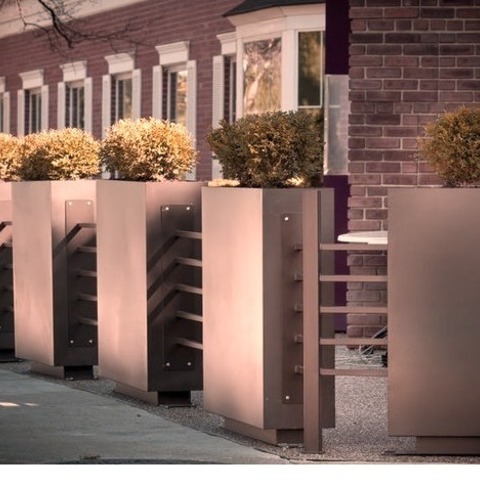
Patio Container Garden
Patio container garden - mid-sized industrial front yard patio container garden idea with an awning
0 notes
Photo

Industrial Patio in Detroit
Inspiration for a mid-sized industrial front yard patio container garden remodel with an awning
0 notes
Text

Grow your own mini herb garden right in your window sill with the Til Planter!
5 notes
·
View notes
Photo
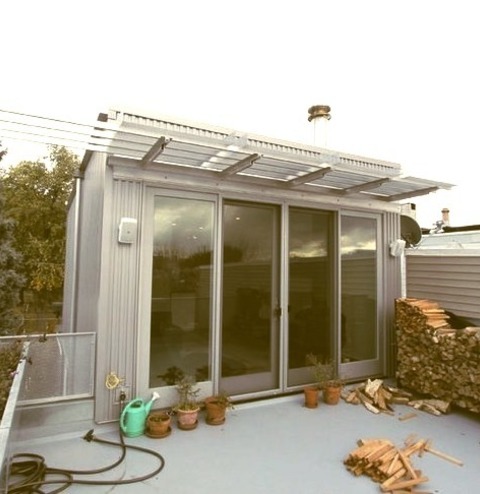
Rooftop Philadelphia
Ideas for a remodel of a medium-sized industrial rooftop deck without a cover
0 notes
Photo
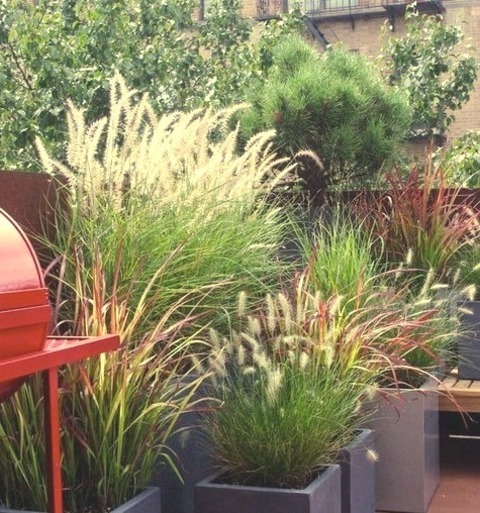
Decking - Modern Landscape
This is an illustration of a decked, mid-sized, modern rooftop landscaping.
#metal patio railing#industrial patio#cherry wood hardscape#light wood stool#rusted metal wall#gray concrete planter
0 notes
Text
Rooftop Philadelphia
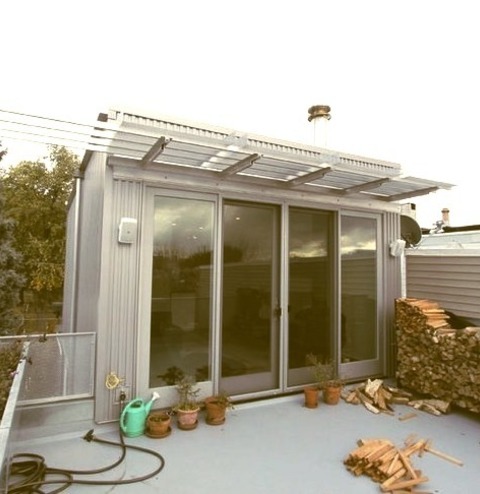
Ideas for a remodel of a medium-sized industrial rooftop deck without a cover
0 notes
Photo

Minneapolis Landscape
Inspiration for a large, formal, industrial courtyard with full sun in the summer.
#concrete planters#gardenstone planters#metal fence#industrial building#commercial landscape#indoor pots and planters
0 notes
Text
RD India FRP Industrial Products: A Reliable Choice for Superior Quality and Performance
When it comes to industrial products, quality, durability, and performance are of utmost importance. RD India FRP Industrial Products Manufacturer is a name you can trust. With a strong commitment to excellence and a track record of delivering top-notch solutions, RD India has emerged as a leading manufacturer in the industry. Let's delve deeper into what sets RD India apart and why they are the preferred choice for FRP industrial products.

Versatile Product Range:
RD India offers a versatile range of FRP industrial products to cater to diverse requirements. We are considered as one of the best and renowned manufacturers of:
FRP Slide
FRP Small Pots
FRP Tank
FRP Bio Digester Tank
FRP Tank Lining
FRP Tent House Decorative Items
Polyresin Items
FRP Aquarium Top Cover
FRP Automobile Products
FRP Canopy
FRP Cartoon Character
FRP Coating
FRP Concrete Mold
FRP Door
FRP Dustbin
FRP E- Rickshaw Roof
FRP Hospital Items
FRP Park Items
FRP Planters
FRP Portable Toilet
FRP Rainwater Gutter
FRP Sitting Items
FRP Chair
FRP Red Tulsi Planter
FRP Park Dustbin
FRP Duo Dustbin
FRP Trio Dustbin
FRP Tulsi Planter
1000 Ltr Bio Digester Tank
FRP Hanging Dustbin
FRP Septic Tank
FRP step tool
We have a comprehensive portfolio of products that can withstand harsh conditions, chemicals, and extreme temperatures. The ability to customize our products further enhances our suitability for specific applications.
Unparalleled Expertise:
RD India boasts a team of highly skilled professionals with years of experience in the field of FRP manufacturing. Our expertise extends across various industries, enabling them to understand and address the unique challenges faced by different sectors. RD India has the knowledge and technical know-how to provide tailored FRP solutions.
Superior Quality Materials:
At RD India, quality is non-negotiable. They source the finest quality FRP materials to ensure their industrial products exhibit exceptional strength, durability, and resistance to environmental factors. The use of high-grade materials, combined with advanced manufacturing processes, results in FRP products that exceed industry standards and offer unmatched performance in demanding industrial environments.
RD India takes pride in its state-of-the-art manufacturing facilities equipped with cutting-edge machinery and technologies. These facilities enable streamlined production processes, efficient quality control, and timely delivery of products. The combination of a skilled workforce and advanced infrastructure allows
Commitment to Customer Satisfaction:
One of the key factors behind RD India's success is our unwavering commitment to customer satisfaction. They prioritize understanding our client's unique requirements and work closely with them to develop tailored FRP solutions. From initial consultation to product delivery and after-sales support, RD India ensures a seamless and personalized experience for every customer.
Environmentally Friendly Approach
RD India recognizes the importance of environmental sustainability and incorporates eco-friendly practices in our manufacturing processes. FRP products inherently possess properties that make them lightweight, corrosion-resistant, and recyclable, thereby reducing environmental impact. By choosing RD India's FRP industrial products, clients contribute to a greener and more sustainable future.
Conclusion:
When it comes to FRP industrial products, RD India stands out as a reliable manufacturer that prioritizes quality, performance, and customer satisfaction. We offer expertise, commitment to excellence, and a diverse product range making them the go-to choice for industries seeking superior FRP solutions. By choosing RD India, you can be confident in the durability, reliability, and long-lasting performance of our reliable FRP industrial products.
#Fibre Dustbin manufacturer#Fibreglass Planters manufacturer#FRP Biodigester tank manufacturer#FRP cartoon dustbin manufacturer#FRP Industrial Products manufacturer
1 note
·
View note
Text
Now Plant Trees Easily with the Help of Grow Tree Bags
Cultivating your garden is an outstanding recreation in warmer months, but keeping track of all the grains and potting mud can be challenging. Grow bags might look unnecessary, but they make it extensively easier to take care of your garden since they're reusable and cost-effective.
What are Grow Bags?
Grow bags are a kind of gardening bags made from heavy-duty polypropylene material. They are frequently utilized to safeguard plants from insects and are famous for planting flowers and vegetables in large quantities. They are available in different sizes to fit almost any planting need and can be replenished with soil, stone, or water.
Why should you Utilize it?
Like most gardeners, you likely have at least one grow bag in your toolbox. A grow bag is a convenient instrument for filling in small spaces, and they come in various sizes to fit just about any requirement. Here are a few reasons you should start using them more often:
1. They make planting small areas comfortable
A grow bag can quickly fill an area that is too small for a conventional pot or container. Just place the plant inside the bag, and then pour mud or compost over the top. You can even use a grow bag to cultivate flowers on a window sill!
2. They make transplanting plants very easy
If you want to shift a plant from one portion of your garden to another, utilizing a planter bag makes the procedure considerably easier. Just keep the plant inside the bag, and then put soil or compost over the top. The plant will remain upright and safe while you shift it.
3. They're great for replenishing holes in your garden bed
Using a planter bag is an extraordinary way to fill the area if you have a space in your garden damaged by pests or deterioration. Place the bag over the void and pour soil or compost over the lid. The plant seeds will grow into the bag and keep it intact.
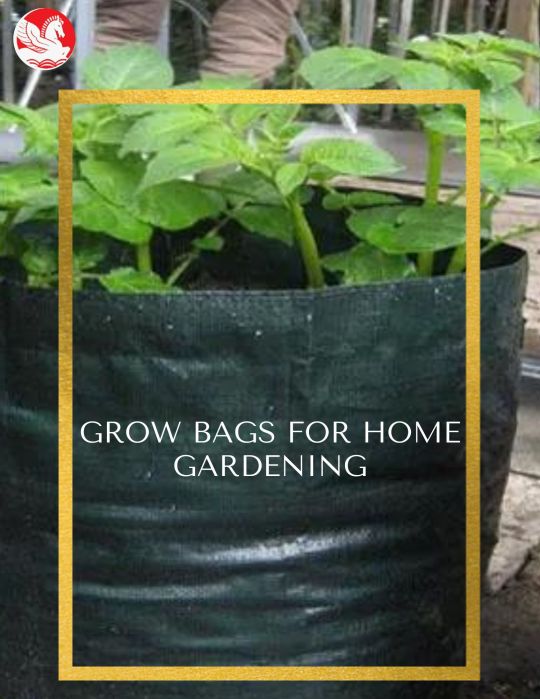
Advantages of Utilizing Grow Bags
If you're like most gardeners, you are likely to utilize a variety of containers to develop plants. From pots and pans to rain barrels and buckets, there's an adequate chance you've got at least one container in your arsenal that your plants love. But what about those other containers? You can't just plow a plant into any old container – they require room to develop, breathe, and yield flowers and fruits. That's where planter bags come in.
1. They're perfect for maturing plants in small areas. Because grow bags deliver a snug partition for the plant's roots, they assist to facilitate development in small areas. Numerous reports suggest that grower bags offer more area than conventional pots or containers.
2. They're incredible for houseplants. Houseplants are extremely prudent to temperature, light, and humidity – so they nicely thrive in bags relatively more than in conventional soil-based pots or containers.
3. They provide outstanding safety from wind and rain. Planter bags help to encompass extra water, which could lead to decay or mildew situations if it gets on the leaves of your plants. So not only do they support protecting your plants from external threats, but they similarly assist them to flourish indoors!
4. They allow seeds to thrive deeper into the mud, which helps a plant's overall health and vitality by delivering more oxygen and nutrients for beneficial growth.
Contact Best Grow Bags Manufacturers
As we know that Grow Bag is best for plants and Trees. If you want to purchase Bulk Grow Bags or a Single Grow Bag you can contact Singhal Industries as they are the best Grow Bags Manufacturer in the country.
#Grow bags#grow bags manufacturer#grow bags supplier#Planter grow bags#hdpe grow bags#grow bags for home garden#grow bags for big tree#Grow bags for indoor gardening#Planter grow bags exporter#Singhal Industries
0 notes
Photo
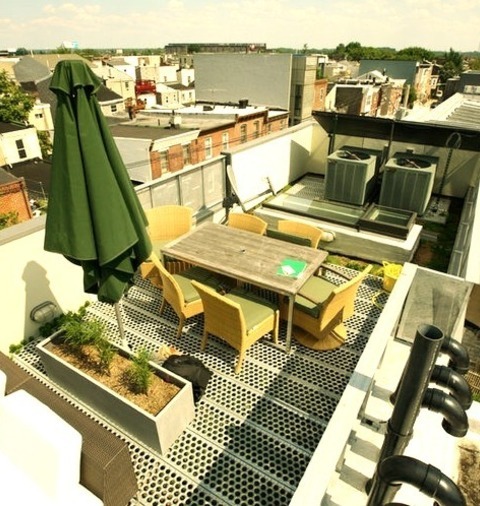
Deck in Philadelphia
Mid-sized urban rooftop deck photo with no cover
0 notes
Photo
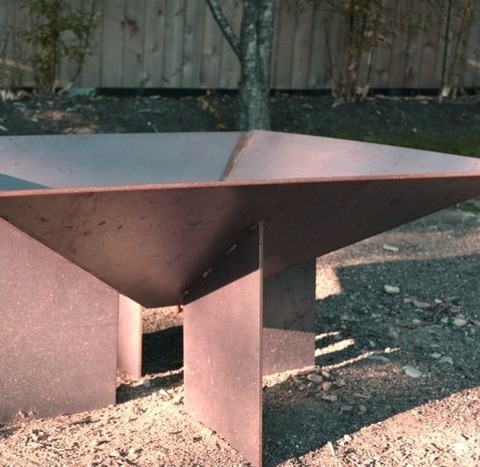
Seattle Flat
Ideas for a medium-sized, one-story, industrial-gray remodel with a flat roof
0 notes
Photo
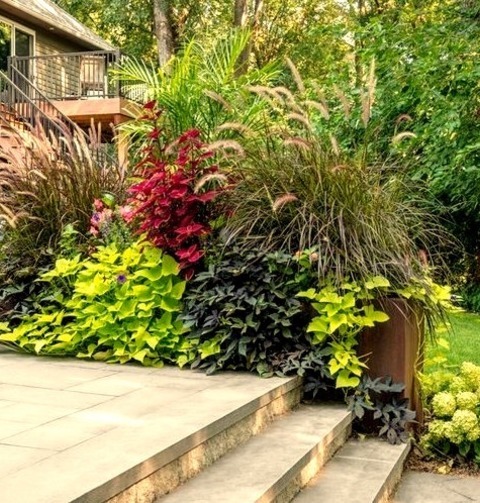
Natural Stone Pavers Landscape Minneapolis
Photo of a large modern backyard stone landscaping.
0 notes
Text
Planter’s House “Industry Sour” - Yellow Chartreuse Variation
Earlier this month I was in St. Louis for a manager training held at Anheuser-Busch. The evenings were free time and I was able to explore a bit. It’s been years since I’ve visited a proper cocktail bar, I was thrilled to snag a bar seat at Planter’s House. After a rainy walk from AB to the Lafayette Square neighborhood, I found myself in a cozy spot. The cocktails and the food did not disappoint. One of their creations, the Industry Sour, now considered a modern classic, was really sublime. I asked for the specs.
I am a fan of the equal parts build, like the Negroni. Each ingredient pulls its own weight and harmonizes to make something more than the sum of its parts.
The Industry Sour is equal parts Fernet Branca, Green Chartreuse, Demerara Simple Syrup and Lime Juice. I’m out of green at the moment; so, I substituted Yellow Chartreuse; see above video.
I’d like to thank Planter’s House for their hospitality. I had an excellent time. I met one of the owners, Ted Charak. It turns out he lived in Portland and co-founded Teardrop Lounge with Daniel Shoemaker. We swapped some stories. Small world.
0 notes
Photo

Sunroom - large contemporary sunroom idea
#Sunroom - large contemporary sunroom idea sunroom#house plants#olive trees#serena & lily#indoor pots and planters#industrial
0 notes
Photo
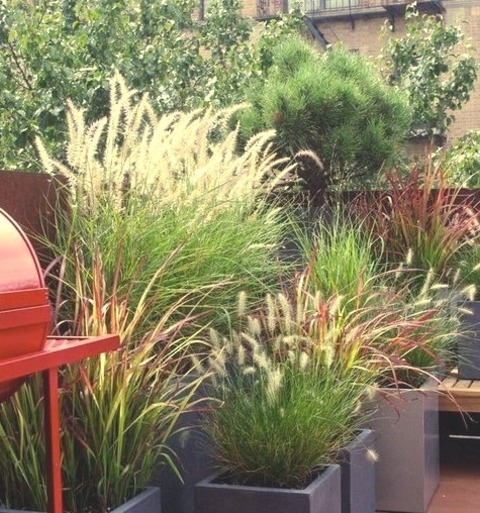
Modern Landscape - Decking
#An example of a mid-sized modern full sun rooftop landscaping with decking. metal planter#industrial railing#metal patio railing#container garden#patio railing metal#light wood stool#cherry wood deck
0 notes
Note
When you tag things “#abolition”, what are you referring to? Abolishing what?
Prisons, generally. Though not just physical walls of formal prisons, but also captivity, carcerality, and carceral thinking. Including migrant detention; national border fences; indentured servitude; inability to move due to, and labor coerced through, debt; de facto imprisonment or isolation of the disabled or medically pathologized; privatization and enclosure of land; categories of “criminality"; etc.
In favor of other, better lives and futures.
Specifically, I am grateful to have learned from the work of these people:
Ruth Wilson Gilmore on “abolition geography”.
Katherine McKittrick on "imaginative geographies"; emotional engagement with place/landscape; legacy of imperialism/slavery in conceptions of physical space and in devaluation of other-than-human lifeforms; escaping enclosure; plantation “afterlives” and how plantation logics continue to thrive in contemporary structures/institutions like cities, prisons, etc.; a “range of rebellions” through collaborative acts, refusal of the dominant order, and subversion through joy and autonomy.
Macarena Gomez-Barris on landscapes as “sacrifice zones”; people condemned to live in resource extraction colonies deemed as acceptable losses; place-making and ecological consciousness; and how “the enclosure, the plantation, the ship, and the prison” are analogous spaces of captivity.
Liat Ben-Moshe on disability; informal institutionalization and incarceration of disabled people through physical limitation, social ostracization, denial of aid, and institutional disavowal; and "letting go of hegemonic knowledge of crime”.
Achille Mbembe on co-existence and care; respect for other-than-human lifeforms; "necropolitics" and bare life/death; African cosmologies; historical evolution of chattel slavery into contemporary institutions through control over food, space, and definitions of life/land; the “explicit kinship between plantation slavery, colonial predation, and contemporary resource extraction” and modern institutions.
Robin Maynard on "generative refusal"; solidarity; shared experiences among homeless, incarcerated, disabled, Indigenous, Black communities; to "build community with" those who you are told to disregard in order "to re-imagine" worlds; envisioning, imagining, and then manifesting those alternative futures which are "already" here and alive.
Leniqueca Welcome on Caribbean world-making; "the apocalyptic temporality" of environmental disasters and the colonial denial of possible "revolutionary futures"; limits of reformism; "infrastructures of liberation at the end of the world."; "abolition is a practice oriented toward the full realization of decolonization, postnationalism, decarceration, and environmental sustainability."
Stefano Harney and Fred Moten on “the undercommons”; fugitivity; dis-order in academia and institutions; and sharing of knowledge.
AM Kanngieser on "deep listening"; “refusal as pedagogy”; and “attunement and attentiveness” in the face of “incomprehensible” and immense “loss of people and ecologies to capitalist brutalities”.
Lisa Lowe on "the intimacies of four continents" and how British politicians and planters feared that official legal abolition of chattel slavery would endanger Caribbean plantation profits, so they devised ways to import South Asian and East Asian laborers.
Ariella Aisha Azoulay on “rehearsals with others’.
Phil Neel on p0lice departments purposely targeting the poor as a way to raise municipal funds; the "suburbanization of poverty" especially in the Great Lakes region; the rise of lucrative "logistics empires" (warehousing, online order delivery, tech industries) at the edges of major urban agglomerations in "progressive" cities like Seattle dependent on "archipelagos" of poverty; and the relationship between job loss, homelessness, gentrification, and these logistics cities.
Alison Mountz on migrant detention; "carceral archipelagoes"; and the “death of asylum”.
Pedro Neves Marques on “one planet with many worlds inside it”; “parallel futures” of Indigenous, Black, disenfranchised communities/cosmologies; and how imperial/nationalist institutions try to foreclose or prevent other possible futures by purposely obscuring or destroying histories, cosmologies, etc.
Peter Redfield on the early twentieth-century French penal colony in tropical Guiana/Guyana; the prison's invocation of racist civilization/savagery mythologies; and its effects on locals.
Iain Chambers on racism of borders; obscured and/or forgotten lives of migrants; and disrupting modernity.
Paulo Tavares on colonial architecture; nationalist myth-making; and erasure of histories of Indigenous dispossession.
Elizabeth Povinelli on "geontopower"; imperial control over "life and death"; how imperial/nationalist formalization of private landownership and commodities relies on rigid definitions of dynamic ecosystems.
Kodwo Eshun on African cosmologies and futures; “the colonial present”; and imperialist/nationalist use of “preemptive” and “predictive” power to control the official storytelling/narrative of history and to destroy alternatives.
Tim Edensor on urban "ghosts" and “industrial ruins”; searching for the “gaps” and “silences” in the official narratives of nations/institutions, to pay attention to the histories, voices, lives obscured in formal accounts.
Megan Ybarra on place-making; "site fights"; solidarity and defiance of migrant detention; and geography of abolition/incarceration.
Sophie Sapp Moore on resistance, marronage, and "forms of counterplantation life"; "plantation worlds" which continue to live in contemporary industrial resource extraction and dispossession.
Deborah Cowen on “infrastructures of empire and resistance”; imperial/nationalist control of place/space; spaces of criminality and "making a life at the edge" of the law; “fugitive infrastructures”.
Elizabeth DeLoughrey on indentured labor; the role of plants, food, and botany in enslaved and fugitive communities; the nineteenth-century British Empire's labor in the South Pacific and Caribbean; the twentieth-century United States mistreatment of the South Pacific; and the role of tropical islands as "laboratories" and isolated open-air prisons for Britain and the US.
Dixa Ramirez D’Oleo on “remaining open to the gifts of the nonhuman” ecosystems; hinterlands and peripheries of empires; attentiveness to hidden landscapes/histories; defying surveillance; and building a world of mutually-flourishing companions.
Leanne Betasamosake Simpson on reciprocity; Indigenous pedagogy; abolitionism in Canada; camaraderie; solidarity; and “life-affirming” environmental relationships.
Anand Yang on "forgotten histories of Indian convicts in colonial Southeast Asia" and how the British Empire deported South Asian political prisoners to the region to simultaneously separate activists from their communities while forcing them into labor.
Sylvia Wynter on the “plot”; resisting the plantation; "plantation archipelagos"; and the “revolutionary demand for happiness”.
Pelin Tan on “exiled foods”; food sovereignty; building affirmative care networks in the face of detention, forced migration, and exile; connections between military rule, surveillance, industrial monocrop agriculture, and resource extraction; the “entanglement of solidarity” and ethics of feeding each other.
Avery Gordon on haunting; spectrality; the “death sentence” of being deemed “social waste” and being considered someone “without future”; "refusing" to participate; "escaping hell" and “living apart” by striking, squatting, resisting; cultivating "the many-headed hydra of the revolutionary Black Atlantic"; alternative, utopian, subjugated worldviews; despite attempts to destroy these futures, manifesting these better worlds, imagining them as "already here, alive, present."
Jasbir Puar on disability; debilitation; how the control of fences, borders, movement, and time management constitute conditions of de facto imprisonment; institutional control of illness/health as a weapon to "debilitate" people; how debt and chronic illness doom us to a “slow death”.
Kanwal Hameed and Katie Natanel on "liberation pedagogy"; sharing of knowledge, education, subversion of colonial legacy in universities; "anticolonial feminisms"; and “spaces of solidarity, revolt, retreat, and release”.
2K notes
·
View notes